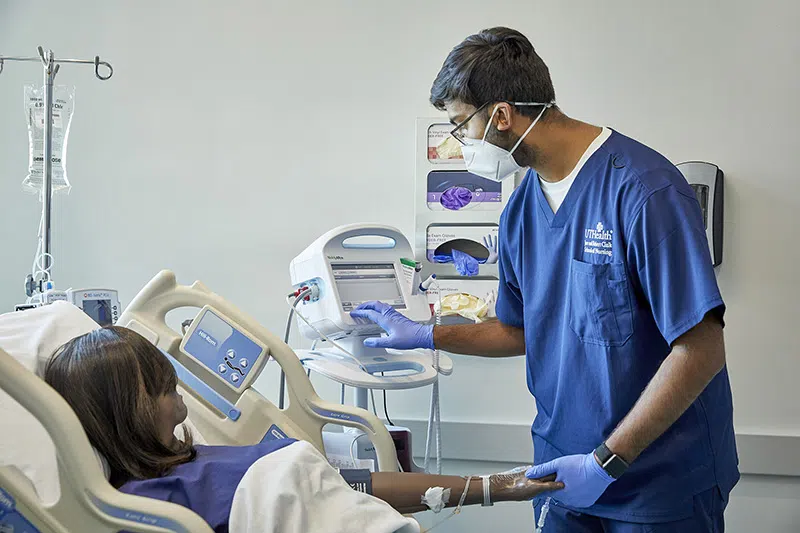MS Public Seminar: AMANDA ECKSTROM
When & Where
March 5, 2025
4:00 PM - 5:00 PM
UTHealth Houston, MD Anderson Cancer Center, BSRB S3.8367 (GSBS Gallick Room) ( View in Google Map)
Contact
- Joy Lademora
- 713-500-9872
- [email protected]
Event Description
An Investigation into the Potential of Cell Therapies for Acute Myeloid Leukemia (AML) Treatment
Amanda Eckstrom, BS (Advisor: Advisory Professor: Venkata Lokesh Battula, PhD)
Despite recent advances in acute myeloid leukemia (AML) treatment, curative rates remain poor with high rates of relapse and many patients are unable to tolerate the intensive chemotherapy standard of care regimen. Cell therapies have shown great success against hematologic malignancies but face several challenges including treatment-related toxicities and human-leukocyte antigen (HLA) matching. Natural killer (NK) cells and gamma delta (γδ) T cells offer alternative effector cell options for cell therapies that do not require HLA-matching and have shown low toxicity in previous studies. In this project, we sought to evaluate FT538 induced pluripotent stem cell-derived NK (iPSC-NK) and donor-derived Vγ9Vδ2 T cells as “off-the-shelf” treatment options for AML patients unable to tolerate intensive chemotherapies or with high-risk disease.
We used live cell imaging to analyze the effect of FT538 iPSC-NKs on AML cell lines and primary AML cells derived from high-risk AML patients, demonstrating potent effector-to-target cell ratio (E:T)-dependent apoptosis in all samples. Flow cytometric analysis revealed that when used in combination with approved AML therapies cytarabine, gilteritinib, and venetoclax, the apoptotic effect induced by iPSC-NKs increased in an E:T and dose-dependent manner, with iPSC-NK viability unaffected by cytarabine. Similarly, we observed donor-derived Vγ9Vδ2 T cells induced E:T-dependent apoptosis on AML cell lines and primary AML cells and extended survival in a Molm-13 GFP Luc xenograft model. Vγ9Vδ2 T cells also exerted an effective apoptotic effect in combination with venetoclax in the venetoclax resistant cell line, OCI-AML3, and improved survival in an OCI-AML3 GFP Luc xenograft model.
Advisory Committee:
- Venkata Lokesh Battula, PhD, Chair
- Gautam Borthakur, MBBS
- Joya Chandra, PhD
- Abhishek Maiti, MD
- Sattva Neelapu, MD
An Investigation into the Potential of Cell Therapies for Acute Myeloid Leukemia (AML) Treatment
Amanda Eckstrom, BS (Advisor: Advisory Professor: Venkata Lokesh Battula, PhD)
Despite recent advances in acute myeloid leukemia (AML) treatment, curative rates remain poor with high rates of relapse and many patients are unable to tolerate the intensive chemotherapy standard of care regimen. Cell therapies have shown great success against hematologic malignancies but face several challenges including treatment-related toxicities and human-leukocyte antigen (HLA) matching. Natural killer (NK) cells and gamma delta (γδ) T cells offer alternative effector cell options for cell therapies that do not require HLA-matching and have shown low toxicity in previous studies. In this project, we sought to evaluate FT538 induced pluripotent stem cell-derived NK (iPSC-NK) and donor-derived Vγ9Vδ2 T cells as “off-the-shelf” treatment options for AML patients unable to tolerate intensive chemotherapies or with high-risk disease.
We used live cell imaging to analyze the effect of FT538 iPSC-NKs on AML cell lines and primary AML cells derived from high-risk AML patients, demonstrating potent effector-to-target cell ratio (E:T)-dependent apoptosis in all samples. Flow cytometric analysis revealed that when used in combination with approved AML therapies cytarabine, gilteritinib, and venetoclax, the apoptotic effect induced by iPSC-NKs increased in an E:T and dose-dependent manner, with iPSC-NK viability unaffected by cytarabine. Similarly, we observed donor-derived Vγ9Vδ2 T cells induced E:T-dependent apoptosis on AML cell lines and primary AML cells and extended survival in a Molm-13 GFP Luc xenograft model. Vγ9Vδ2 T cells also exerted an effective apoptotic effect in combination with venetoclax in the venetoclax resistant cell line, OCI-AML3, and improved survival in an OCI-AML3 GFP Luc xenograft model.
Advisory Committee:
- Venkata Lokesh Battula, PhD, Chair
- Gautam Borthakur, MBBS
- Joya Chandra, PhD
- Abhishek Maiti, MD
- Sattva Neelapu, MD









